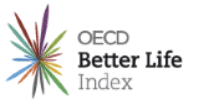BY THOMAS FRISBIE, CFA
So far in 2019, as it has been for decades, the daily fortunes of politicians and financial markets seem to swing upon the latest report on GDP (gross domestic product; basically, our economy’s growth). When the news is good, incumbents crow, opponents change the subject, and the stock market soars (that is, until it begins to worry that good economic news will actually be bad news for interest rates or inflation). Whenever the GDP report signals weakness, the fortunes of incumbents and the stock market sink. But does this make any sense?
As described in our October, 2014 market letter, the GDP calculation is a very imperfect measure of economic growth, and it completely ignores any estimation of gains in the quality of its citizen’s lives. In very general terms, GDP is a total dollar value of all production in the nation, measured by total sales in the private sector and total payroll in the public (government) sector. If the resulting GDP calculation is higher than last year, it is assumed the economy grew; if not, it is assumed the economy is in recession. But can a total of all dollar-based transactions capture whether the citizens of a nation are building better lives? GDP calculations can be either blind or paradoxical in how they value some human activities. For example, if a mother provides day care to another family’s children for a fee, she adds to GDP; but if she instead devotes all her attention to her own children, uncompensated, she contributes nothing to GDP, even though her children benefit. For another example, consider a doctor who correctly diagnoses only 50% of the illnesses he sees in Year One but, spending more time with each patient, improves his/her accuracy rate to 85% in Year Two. If he/she bills the same total amount of fees in both years, the doctor’s contribution to growth in Year Two will be zero. But clearly his/her patients will have received far better healthcare in Year Two. And there is the problem of “broken window” contributions to GDP. Money spent to repair damage from natural disasters (“broken windows” on a very large scale) increases GDP, but the losses from the disaster destroy wealth but do not count against GDP. GDP only measures changes in activity, not changes in wealth and therefore not changes in a society’s sense of well-being. A rising GDP can coincide with a population’s sense of increasing insecurity.
In 1973, Penn economist Richard Easterlin created a stir by noting that rising GDP may contain a paradox. Based on survey information, Easterlin claimed that, in general, the citizens of rich countries are “happier” than the citizens of poor countries. However, at least in some cases, he claimed that further gains in GDP were not always increasing that nation’s “happiness”. The implication was that growth can come at a cost in terms of “quality of life.” Other economists hopped on board, noting that the monetary value of total economic output (GDP) can rise infinitely, but presumably the amount of “happiness” people derive from more work and greater compensation does not. Whether Easterlin’s claim is valid remains controversial, but 17 years later, the United Nations jumped into the debate.

Over the years, other economists have concocted an alphabet soup’s worth of indices in the attempt to measure a nation’s well-being, not just its economies. They sport names such as the Measure of Economic Welfare (MEW), the Index of Sustainable Economic Welfare (ISEW), the Genuine Progress Indicator (GPI), Net National Product (NNP) and the latest, the Better Life Index (BLI). 
